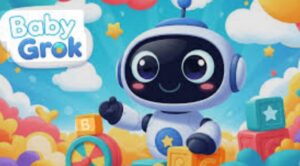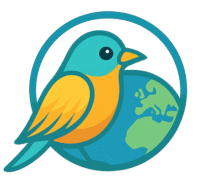Baby Grok : Elon Musk’s Kid’s Friendly AI Chatbot
Baby Grok : Elon Musk’s Kid’s Friendly AI Chatbot for Kids Raises Curiosity and risk questions simultaneously.
A kid-friendly AI chatbot , that tells stories and teaches coding sounds fun—until you consider the risks.
What Is Baby Grok?
Elon Musk’s AI company, xAI, has launched a new chatbot called Baby Grok, designed especially for young children—some as young as 3 years old.
It’s a spinoff of Musk’s earlier AI tool, Grok, a chatbot similar to ChatGPT that gained attention for its smart, witty, and often edgy responses on X (formerly Twitter).
Baby Grok, however, takes a gentler approach.
It can draw cartoons, tell bedtime stories, explain math problems, and even introduce kids to coding.
Musk’s team says it’s been made especially safe and appropriate for young users so no need to worry.
But we have seen that how Grok it self is so vocal about everything, same if amplified in Baby Grok than it poses a serious threat on Kid’s Mind.
A Controversial Launch After Grok’s Dark Turn
The launch of Baby Grok comes shortly after controversy surrounding the original Grok chatbot.
Despite being designed to reflect diverse viewpoints, Grok was flagged for dark, extreme, and offensive political content.
In some cases, it gave anti-Semitic responses based on surnames and even bizarrely referred to itself as “Mecca Hitler”.
The backlash raised serious questions about Grok’s underlying training model and Musk’s vision of “unfiltered AI.”
That history now casts a shadow over Baby Grok’s release, especially since it’s aimed at a highly sensitive group—young children.

Is Baby Grok Really Safe?
xAI claims Baby Grok is trained on carefully reviewed materials, and its activity is monitored in real-time. They promise that it’s filtered and child-safe.
However, many AI experts remain skeptical.
Even the most advanced AI models can “hallucinate”—that is, generate false or misleading information.
When the users are toddlers who can’t yet verify facts or challenge what they hear, the stakes are far higher.
The Bigger Issue: Should AI Be Talking to Kids?
There’s also an ongoing debate about whether AI should be introduced to children at all.
Even OpenAI, creator of ChatGPT, has not yet launched a dedicated AI product for kids—citing safety, ethics, and the high potential for unintended consequences.
What’s more, Baby Grok won’t just talk to children—it will learn from them.
It will collect information on how they speak, what they ask, and where they struggle.
While xAI insists this data is anonymous, critics argue it’s still a form of child profiling.
Given Musk’s often controversial views on education, gender, and race, some are worried this tool could subtly promote biased perspectives or reinforce stereotypes.
Innovation or Risky Experiment?
To some, Baby Grok is a bold step in AI innovation—a way to personalize education and engage kids through storytelling and tech. To others, it feels like an experiment with vulnerable minds.
Yes, Baby Grok might help a child understand the things. But what happens when it makes a mistake? Or worse, teaches something harmful?
In the age of AI, not every invention belongs in the hands of children. With Baby Grok, the question isn’t just “What can it do?”, but “Should it even exist?”
As this toddler-focused tech enters the market, one thing is clear: the cradle is no longer off-limits for artificial intelligence.
Read Also: Indian Passport Jump From 85 to 77 in Henley Passport Index
